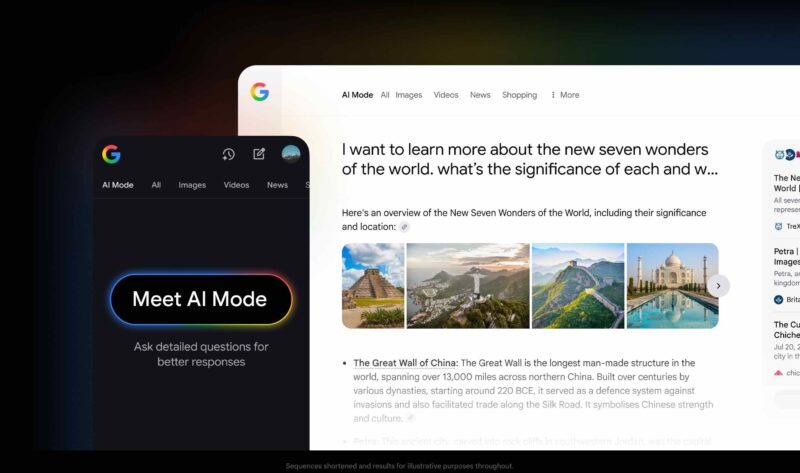Google today announced the launch of AI Mode in Search for users in Nigeria, Kenya and South Africa, introducing a new era of AI-powered search that is more intuitive, comprehensive, and helpful. AI Mode helps users tackle complex, multi-part questions with more intuitive responses, multimodal inputs, and deeper ways to explore topics.
The feature will be rolled out today and will appear as a tab on the Search results page and within the Google app for Android and iOS.
Powered by a custom version of Google’s latest Gemini 2.5 model, AI Mode brings advanced reasoning and context understanding to Search. “We’re incredibly excited to bring AI Mode to our users in the region,” said Alex Okosi, Managing Director, Google Africa.
“We know that people in this region are curious and have complex questions about everything from planning a trip to understanding a new concept. With AI Mode, Google is reimagining the Search experience. Users will not only find the information they need more easily but will also be empowered to explore a wider range of content from across the web”, he explained.
Similar: Google unveils new AI Community Centre in Accra
AI Mode transforms how people interact with Search by allowing them to ask nuanced and exploratory questions that would previously require multiple searches.
It is especially useful for longer, more detailed queries. A key feature of AI Mode is its advanced reasoning, which uses a query fan-out technique to break down a user’s question into subtopics and simultaneously search a multitude of queries on their behalf. This allows for a deeper dive into the web, uncovering hyper-relevant content.
For example, you can now ask questions like: “Things to do in Cape Town this weekend with friends. We’re big foodies who like music but also chill vibes and exploring off the beaten track.” Or: “How do migrating birds know where to go?”

Behind the scenes, AI Mode uses Google’s query fan-out technique, breaking down your question into subtopics and issuing a multitude of queries simultaneously on your behalf. This enables Search to dive deeper into the web than a traditional search.
Google also believes that it will offer and find incredible, hyper-relevant content that matches users’ questions.
Multimodality in Google’s AI Mode
AI Mode is designed to be multimodal. This means that it will allow users to interact in a manner that is most natural for them, whether through text, voice, or even images.
Simply tapping the microphone icon or uploading a photo allows users to ask questions using their voice or camera.
A core principle of AI Mode is to help users find the best response forms to their queries. The AI-powered response includes prominent links to web sources, expanding the types of questions people can ask and opening up new opportunities for content discovery.


Web links are prominently displayed, ensuring users can easily click through to discover more. Data from AI Overviews shows that AI-powered results lead users to visit a greater diversity of websites and spend more time engaging with them. While AI Mode aims to provide a reliable AI-powered response, in cases where confidence is not high, the system will default to a set of traditional web search results.
Google noted that it remains committed to supporting the open web and ensuring that its AI-powered features are rooted in its core quality and ranking systems.
While it admits that the system will not be perfect at once, the tech giant commits that it will continue to improve the technology. “And as with any early-stage AI product, we won’t always get it right, but we are committed to continuous improvement”, the team said in a. blog post.








